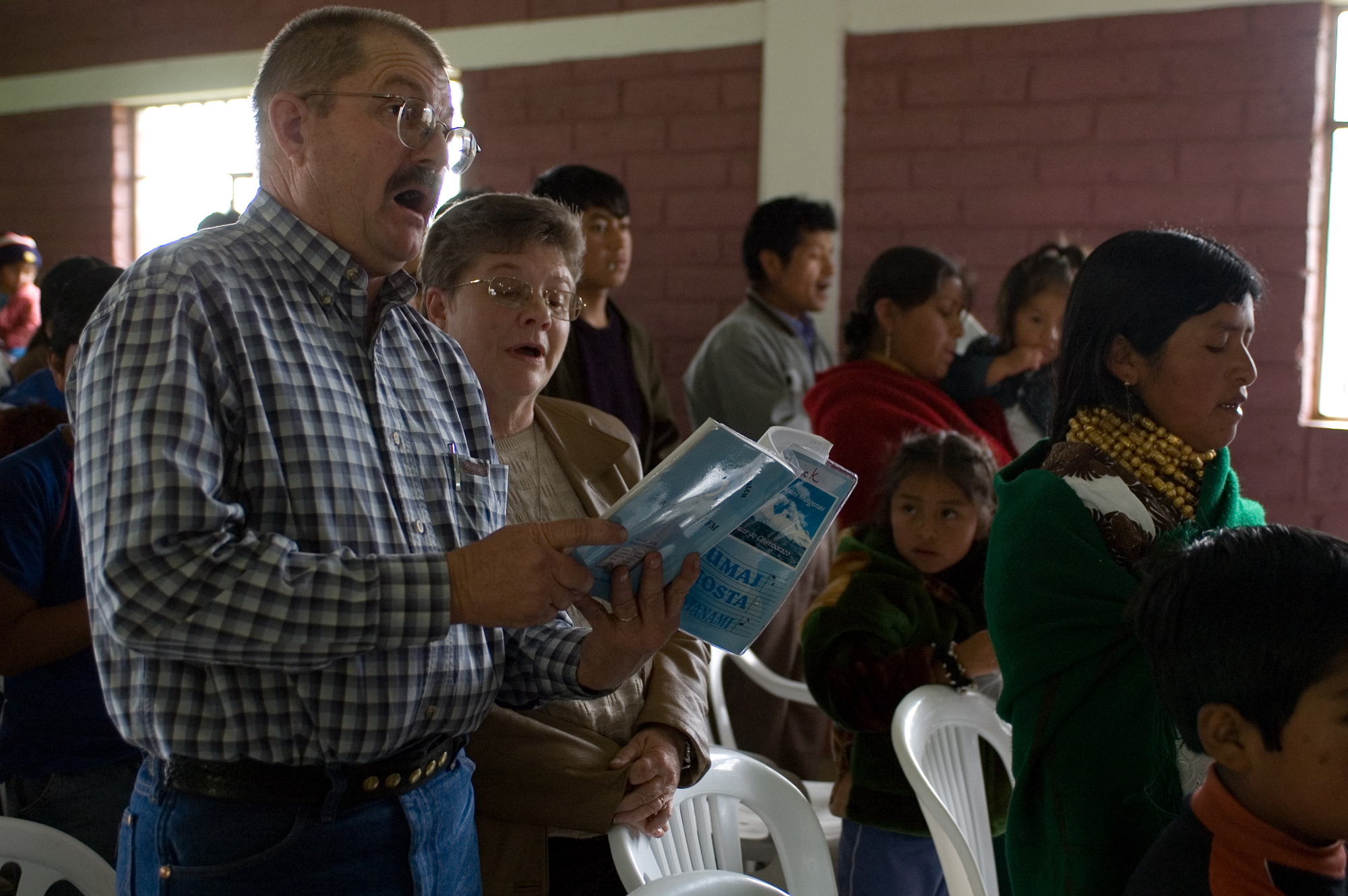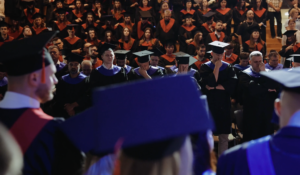
EDITOR’S NOTE: This year’s Week of Prayer for International Missions, Nov. 30-Dec. 7, focuses on missionaries who serve in South America as well as churches partnering with them, exemplifying the global outreach supported by Southern Baptists’ gifts to the Lottie Moon Christmas Offering. This year’s theme is “GO TELL the story of Jesus”; the national offering goal is $170 million.
LA RINCONADA, Ecuador (BP)–Darrell Musick shifted his tan Chevy pickup into four-wheel drive to begin off-roading mountain trails through the Ecuadorian Andes. After pushing his truck to the limit, the missionary and three local believers hiked their way to a small home on the edge of La Rinconada village -– a small Quichua community rumored to want a Bible study.
Two women on the porch of a woodworking shop allowed the missionary and his friends to play a taped recording of the story of creation. The women heard the Bible story and exclaimed that it was the second time that day they had heard the Scripture in their own language. At 5 a.m., they heard the same man on the radio –- the first broadcast ever made on the Quichua station.
“We have been praying diligently for a church in our community,” one woman said tearfully. “We have even gone to the effort to start building, hoping someone would come and lead us.”
Within a year, a small church began meeting in La Rinconada. Another one has started in a neighboring town. Through radio programs, Bible storying, agricultural projects and health fairs, more than 40 house churches and Bible studies now meet in Quichua villages dotting the mountain ridges of the Imbabura province in northern Ecuador.
“The Quichua seem to be hungry for the Gospel,” Musick’s wife Rogene says. “They see hope in us.” Just eking out a living is so hard for them, she says. “They need the hope of the Gospel.”
The Quichua have reasons to feel hopeless. The rural farming people often are poor and have little education — a result of hundreds of years of rule from the Incas to the Spanish. Only 2 percent of the 300,000 Quichua in the province have the assurance of Jesus Christ.
RAISING UP CO-LABORERS
Each effort — from a radio ministry to Bible storytelling to agricultural clinics — provides an opportunity for the Musicks to share the Gospel with the Quichua.
The Musicks draw on their ranching roots to help improve the Quichuas’ livestock and crops. Before going to the mission field in 2004, Darrell, 54, and Rogene, 52, operated a ranch in New Mexico, where they grew up. Darrell’s home church is Jackson Avenue Baptist Church in Lovington and Rogene’s is First Baptist Church in San Jon.
Now the duo perform check-ups on cows and pigs, treat parasites or diseases and give advice on crop production to Quichua farmers.
Although the Musicks arrived as agricultural specialists, their primary job is to plant churches. Their co-laborers already were in place — the leaders from two established Baptist churches who had worked with other Southern Baptist missionaries. Yet even as the Musicks set out to encourage, train and help organize the believers, there was one pitfall of missionary work they wanted to avoid from the beginning — dependence.
In practical ways, the Musicks are building relationships throughout the province, training national church leaders by example and empowering them to lead in efforts to draw fellow Quichuas to Christ.
Many Ecuadorians would question a Quichua’s ability to lead, Rogene says, because many of them can’t read, are missing teeth and lack education. Yet, she notes, they are living out lives of obedience with a tenacity that motivates them to start house churches, even when the missionaries are away.
The best part for Darrell is when a Quichua believer comes up to him timidly and says, “I hope it’s OK, but while you were gone we had the chance in such and such community, and we started a group there.”
VOLUNTEERS’ SUPPORT
Taking a support role to indigenous Quichua ministry is a function the Musicks teach volunteers who play a valuable part in church planting.
Rogene’s home church sent a short-term mission team to northern Ecuador in the summer of 2006. Working in villages selected by Quichua believers, the team spent mornings prayerwalking to undergird the nationals as they ministered and afternoons helping with a health fair.
While team members set up an area for children and information stations about nutrition, parasites and dental hygiene, the Quichua believers handed out evangelism materials, answered questions and probed for an opportunity to begin a Bible study in the village. In 2006, volunteer teams worked in 12 Quichua communities.
“The Quichua would immediately follow up and try to get a time to start a Bible study,” Rogene recounts. “Out of those 12 communities, we started 10 Bible study groups. Many of them now are house churches.”
REAPING THE RESULTS
When a Quichua community begins changing for Christ, the results are noticeable, Rogene says. The village is cleaner, the roads are better and crime diminishes.
The Musicks want to change the face of communities around the Imbabura mountain. But to reach every isolated group, they need the support of Southern Baptist churches. They need Hispanic believers who can communicate with the Quichua and Native American volunteers who can relate to similarities in the Quichua culture. They also want agricultural students to come on mission trips to teach and train the Quichua.
Although some needs are specialized, God can use any believer’s hands and heart to make an impact in Ecuador, Darrell says.
“We’re not spring chickens and we’ve never been to seminary,” he says. “But God has allowed us to work in ways we never, ever imagined. It’s never, never too late to be obedient. Not everybody needs to be a missionary, and God doesn’t ask them to be. He may be asking you to volunteer.”
–30–
Dea Davidson is a writer for the International Mission Board. To learn more about how volunteers can help South America’s Quichua reach fellow Quichua for Christ, visit samregion.org. See going.imb.org for general volunteer opportunities. Gifts to the Lottie Moon Christmas Offering can be made at www.imb.org/offering to support the International Mission Board’s more than 5,300 missionaries worldwide, including Darrell and Rogene Musick in Ecuador.











